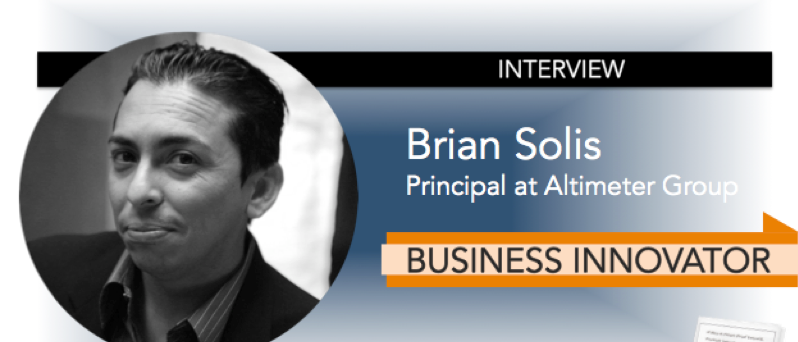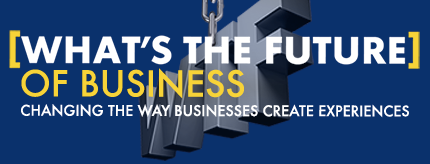I’m a pretty private person usually. From time to time though, I share stories about my past to help others take their next step. This is one such case. Scott Steinberg is a good friend and the other of several books including his most recent title, Make Change Work for You. We chatted recently about lessons learned over the years.
I wanted to share our conversation with you here…
Scott Steinberg: You’ve been tremendously successful in your career. Would you call yourself an overnight success?
Me: In 1991, I joined an advertising technology firm in Southern California as a database architect. I was building these efficient databases around a paper-based system, which their marketing team used to track publication data for media buying purposes. At the time, I was sort of in awe of how little my colleagues knew about technology, and its impact on business. So I went to the president of our agency and asked if I could help add a technology perspective to some of our marketing programs. Shockingly, he said yes. That’s where it all began.
While I didn’t go to school for marketing, I knew what technology could do and I was very motivated by the performance metrics used in traditional marketing. Eventually, I was offered an opportunity at a big PR firm in Silicon Valley that was too good to pass up. I didn’t know much about PR, but I offered unique technology perspective and that led to some unconventional success.
But that was just the beginning. From there I went on to start a new tech marketing firm which ran for about 12 years, partnered with Ashton Kutcher on new marketing programs for the United Nations, Oprah, The Cosmopolitan Hotel, among others, joined Altimeter Group as a Principal Analyst and advised hundreds of tech startups and wrote several books along the way.
So yes, it’s been an overnight success 20 plus years in the making. But, in all seriousness, success is both relative and elusive. The most successful people I know wouldn’t say they’re successful. They always have something more to do.
Q: You said you were programming, were you self-taught?
I taught myself when I was a young kid. I was mowing grass and washing cars as a 12 year old to save up for my first PC. I then studied key languages, key at the time that is, in high school. From there, I geeked out on everything tech and continue to do so. Although I don’t code anymore, I do think it taught me quite a bit about logic and design. I launched some cool products over the years such as FriendFilter and AgeGater for Twitter (back when you could build on the API).
Now I’m obsessed with UX and HCD (human centered design.) More on that later.
Q: How did you survive the dot-com bubble and the subsequent downturn?
There wasn’t as much demand during the dark times. You had to be creative. You took your retainers, but you also had to show that you would deliver dividends. There was an emotional element too, I went from 40 to 20 people and it was heartbreaking. In order to keep yourself going, you have to fight another fire — mine was a passion for changing the world of marketing and business. I probably don’t look back enough because I’m always moving forward…sometimes too quickly.
Q: Do you think that’s the case for most people, that the corporate ladder is straight up or is it more of a zig-zag?
It’s not a ladder designed to go one way to be successful. You have to go up and down and across. As a young adult, maybe your dream is one thing and it’s something different later. Happiness is not defined the way it was for our parents, and I think younger people are starting to realize that. We’re living in an economy where people aren’t even buying cars anymore. They’re not buying houses because they’re too ridiculously expensive, so they’re renting or subletting. There’s more freedom to explore what makes you happy.

Q: What has been the scariest point in your career?
When I started FutureWorks in 1999, I was terrified. I had a 3 year old son. I was leaving a promising gig. At the same time, I was undertaking what would then be a tremendous lifestyle change at a time when I thought I had “made it.”
Failure is part of everything. You have to fail. And if you don’t, you’re probably not trying enough new things. The key is that you have to try enough so there are greater successes relative to the failures. Throughout my career, I haven’t thought of failure as scary, because I was on a mission. Once you start pushing for things to happen, you create your own destiny. That’s the truth. If you are pushing against a purpose, people will recognize that and support it.
Q: What advice would you give to someone who feels stuck in their career?
I’m an introvert, and I still can’t work a room to this day. I’m not a good self-promoter. But I am passionate and I will share that passion with you given the opportunity. One of my gifts as an introvert is the power of observation. Observe what is happening around you and decide where you want to be. Where I am now, and where I want to be, is separated by my actions and words. As an introvert, one of the things I learned by participating in online communities is there’s a sense of confidence that spills online into the real world. If you look at the true power of knowledge, it’s not just what you learn in the classroom, it’s the power of observation. If you let what you see touch you, once you feel it, you’ve also been given the gift of empathy.
Connect with me… Twitter | LinkedIn | Facebook | Youtube | Instagram | Pinterest








Hey Brian,
Nothing better than a spot of “people watching” with a coffee and a book.(Non creepy stalker way I promise!)
Have been reading a lot about success and motivation recently and there’s always a recurring theme.
The main points that stuck out to me where these:
Everything done in the world, all great creations, laws and technology, were all built by people just like you. You have the power to make these changes also
If you don’t fear whats happening, then you’re not pushing yourself, and will become stagnant. Happiness stems from growth and overcoming fear
The most successful people will have failed more times than the unsuccessful will ever try
Thanks for sharing Brian, even though its not comfortable to do sometimes!
Regards
Daniel Daines-Hutt
What a fantastic comment Daniel. Thank you. Excellent assessment!
Not a problem Brian,
You keep doing great content, i’ll try and provide good-ish comments ha